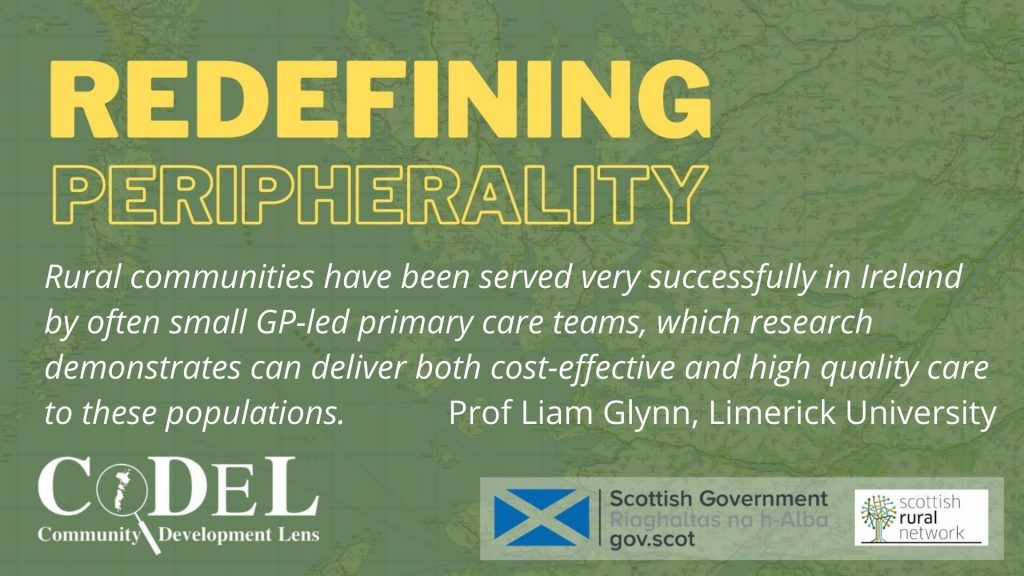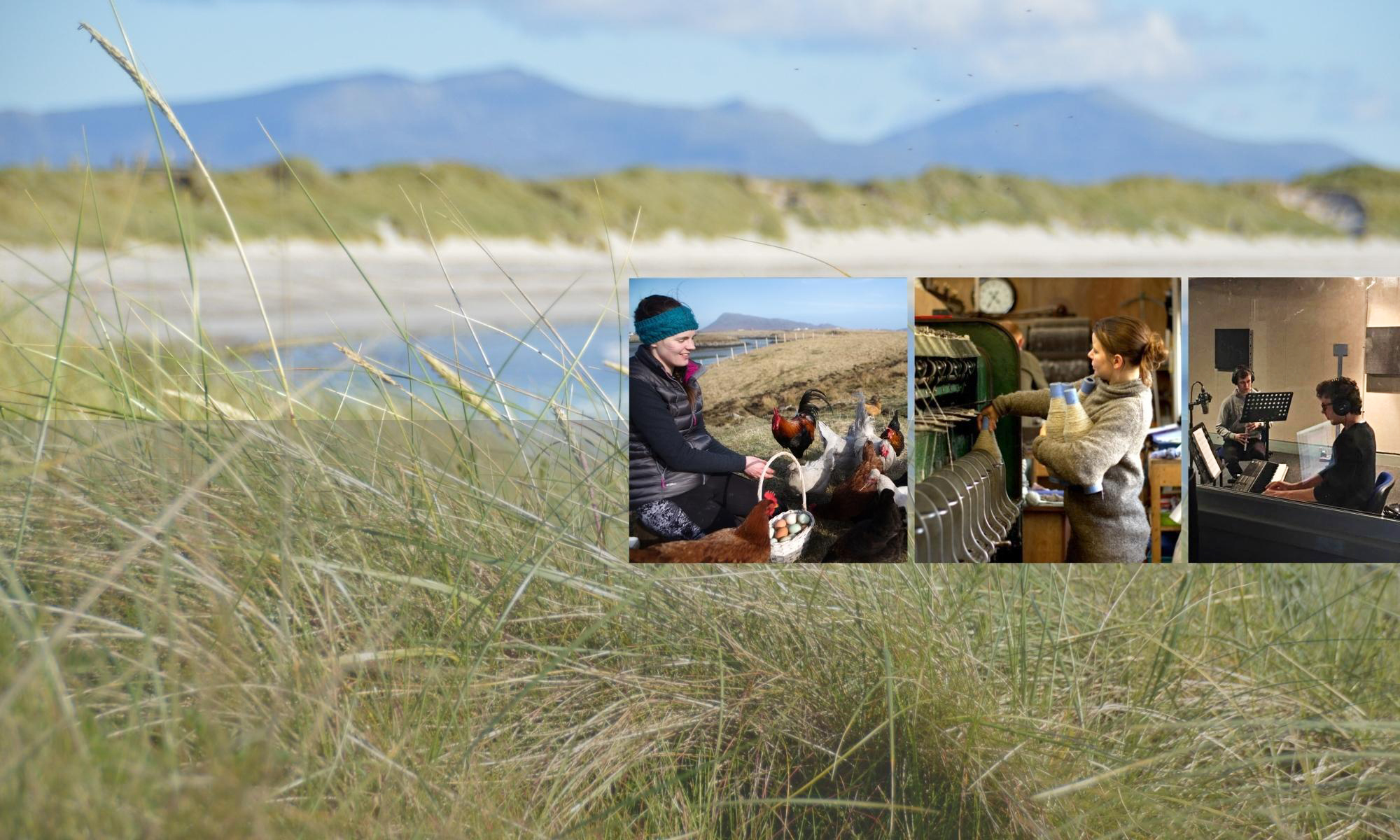by Prof. Liam Glynn, a general practitioner in Ballyvaughan, Co. Clare, Ireland and Prof. of General Practice at the School of Medicine, University of Limerick, which is hosting this year’s World Rural Health Conference in June.

Ireland has one of the highest rural-based populations in Europe. The figure appears to be on the increase as the new working arrangements triggered by the pandemic have given many people new opportunities to live outside major urban centres. This reverse of the depopulation of rural communities has also been triggered by their resilience seen during the challenges of Covid-19.
Recent research conducted in collaboration with the School of Medicine at the University of Limerick, CoDeL and others across the Northern Periphery has demonstrated that rural areas ere advanced in terms of their sustainability, and were organised and effective in responding to challenges with positive health and economic outcomes during lockdowns. The pandemic has generated renewed vigour in re-imagining life on the periphery as an attractive place for people and businesses to work and live.
Rural communities have been served very successfully in Ireland by often small GP-led primary care teams, which research demonstrates can deliver both cost-effective and high quality care to these populations. The continuity of care created by such a system is associated with reduced need for out-of-hours services, reduced acute hospital admissions, reduced emergency department attendance and is also associated with decreased mortality.
“We saw during the Covid-19 pandemic how central and significant the role of general practice is in Irish healthcare.”
Dr. Diarmuid Quinlan, medical director of the Irish College of General Practitioners
WONCA’s 2022 World Rural Health Conference in Limerick will be a showcase for all that is best about Irish, and world, rural practice. The conference theme, ‘Improving Health, Empowering Communities’ will explore how communities can be empowered to improve their health and the health of those around them. We will hear from 1,000+ participants from across the world in sectors including health, science, engineering, the arts, and NGOs.
The chief challenge of delivering healthcare in rural Ireland is the recruitment and retention of a healthcare workforce. The practice I work in employs seven staff directly and two indirectly in a village with a census population of 250. So practices are valuable economic units and investment in a transformed healthcare workforce has the potential to create the conditions for inclusive economic growth and job creation, thereby promoting greater economic stability and security, itself a key factor in better health outcomes – so thus, a virtuous circle is created
Investment in rural health can play a transformative role in expanding and financing decent work opportunities. Equally, the removal of such a workforce has a disproportionately negative effect on small communities demonstrating the truth of the axiom ‘no doctor, no village‘.
The ‘corporate knowledge’, to use a business phrase, of individual and family health profiles that each of these multi-disciplinary, community-based healthcare teams possess in relation to the population they serve and the therapeutic relationships on which these are based, are an enormous health asset in our healthcare system which we should make every effort to maintain, sustain and develop. Once these are lost, they are lost forever, and their ability to reduce the need for out-of-hours services, acute hospital admission and emergency department attendance is also lost.
Over 90% of healthcare contacts happen in the community and any healthcare system that has primary care as its foundation is more cost-effective, and delivers better health outcomes for people.
To maintain, sustain and develop our rural healthcare system, we need:
- targeted admission policies to enrol students with a rural background in health worker education programmes
- to connect and embed health education institutions closer to rural communities and ensure they are community facing and have a curriculum which is dominated by community-based teaching programmes.
The Scottish Graduate Entry Medical Programme (ScotGEM) is Scotland’s first graduate entry, undergraduate medical programme. ScotGEM, tailored to meet the contemporary and future needs of the NHS in Scotland, focuses on rural medicine and healthcare improvement and is designed to develop interest in a generalist career within NHS Scotland. Building on the existing strengths of medical teaching in the Universities of Dundee and St Andrews and health boards in Fife and Tayside, collaboration with NHS Highland, NHS Dumfries and Galloway, and the University of Highlands and Islands enable a truly distinctive programme which includes extended opportunities to train in remote and rural areas.
- to expose healthcare students to rural and remote communities and rural clinical practices and rural health topics throughout the educational continuum.
- to design and facilitate access to continuing education, professional development programmes and career development that meet the needs of rural health workers to support their retention in rural areas.
There is a need to switch the current focus on large urban-based healthcare infrastructure development and invest in rural healthcare infrastructure to ensure decent working conditions for rural health workers.
- to develop different types of health workers for rural practice, such as expanded paramedic roles and advanced nurse practitioner roles to meet the needs of communities based on people-centred service delivery models.
- to employ a package of fiscally sustainable, financial and non-financial incentives for health workers practising in rural and remote areas. The rural practice allowance is one such key support in Ireland, but access to it needs to be widened and it needs to be increased.


One Reply to “What rural healthcare delivers for rural communities”